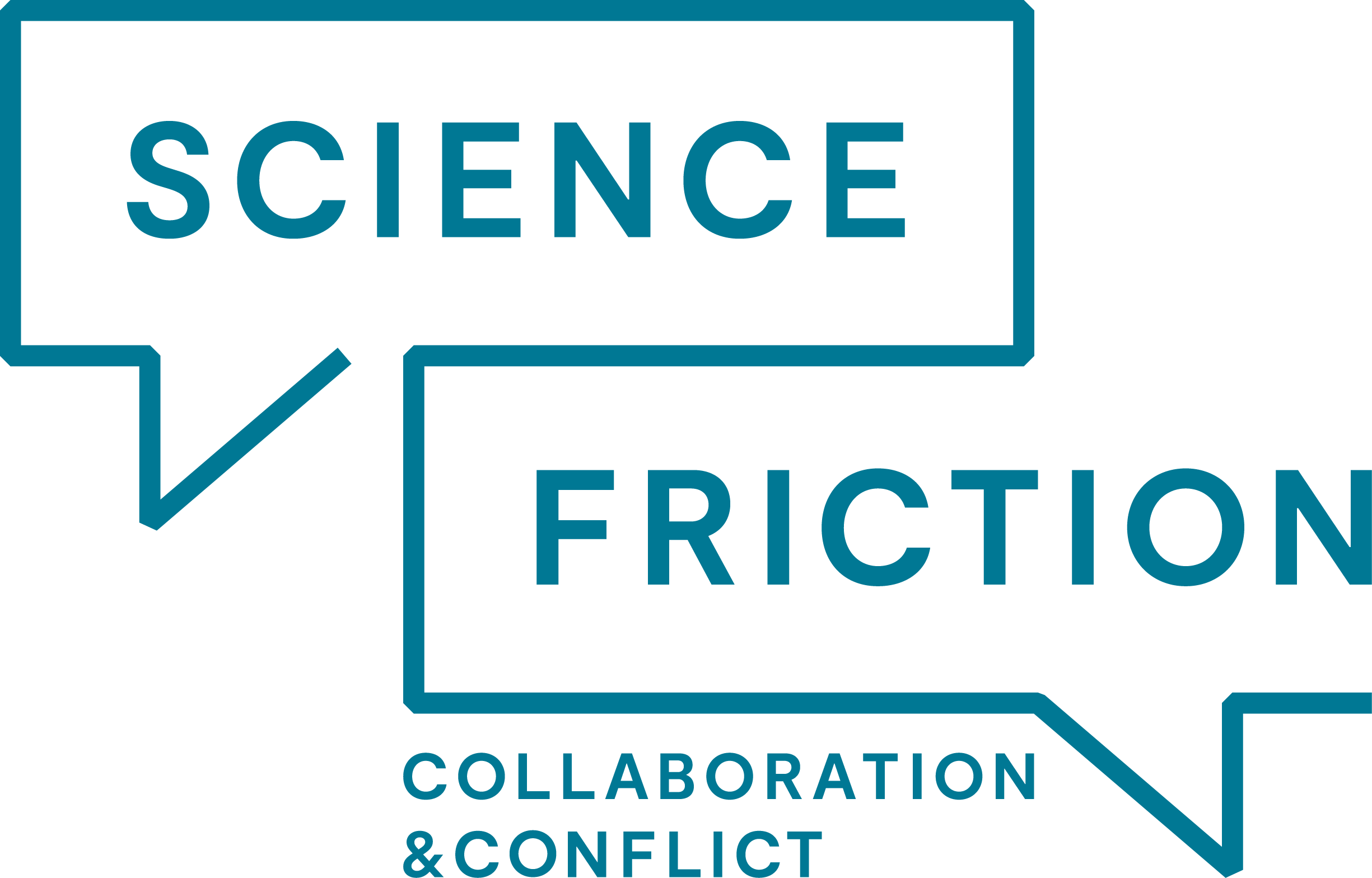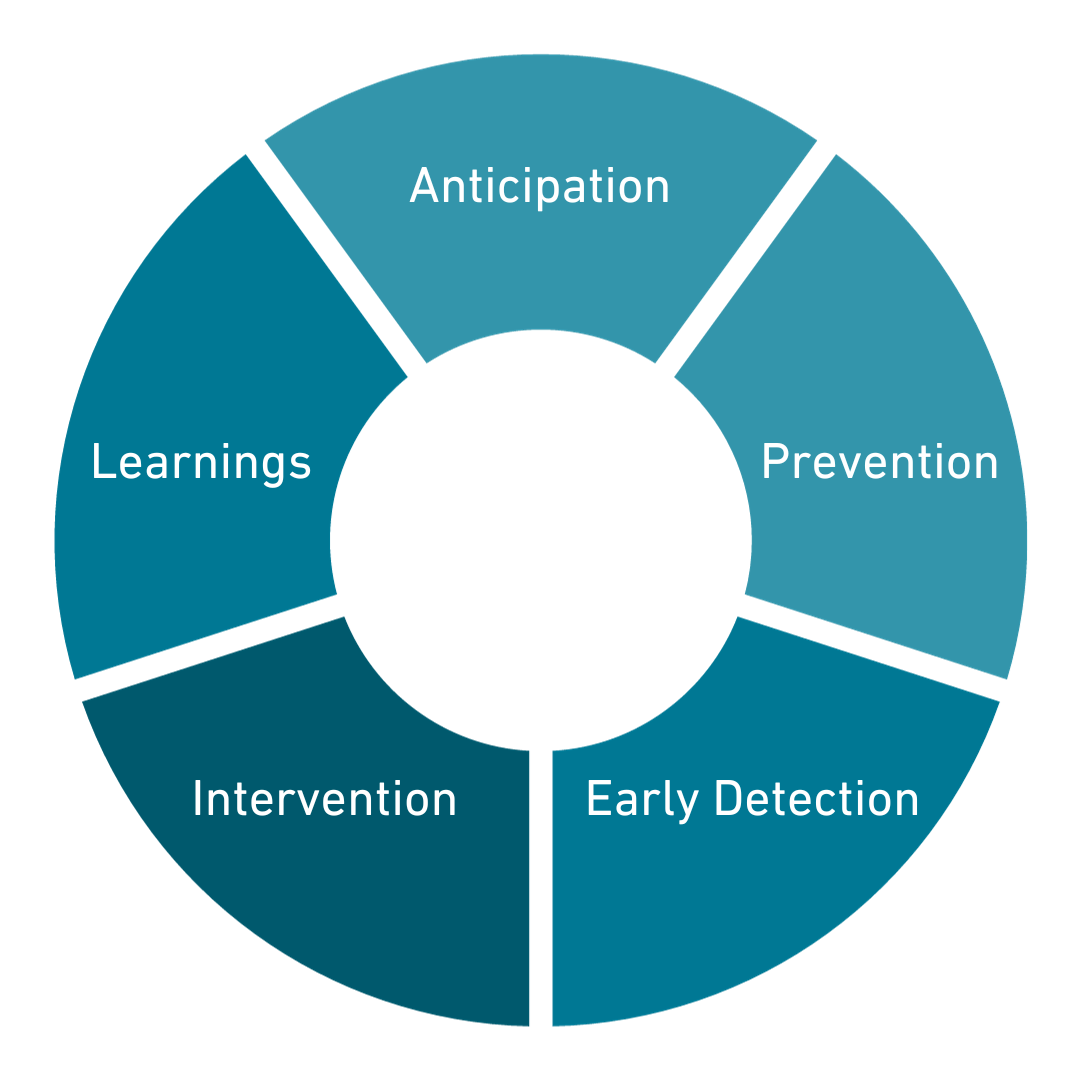Science Friction: managing collaboration and conflict in academic groups
Conflicts affect performance and unnecessarily absorb resources. We encourage you to cultivate a constructive culture of cooperation and conflict resolution. We also provide assistance during an escalation. Discover our services.

Unaddressed and unresolved conflicts and their escalation can cause enormous pressure. Whether in conflict prevention and anticipation, as an intervention in an existing conflict or as a follow-up to an escalation – we advise and support research groups on the topic of conflict management for as seamless a collaboration as possible.
For professors: Duty of care in conflict situations
November 6, 2025, 10.30 – 12.30 h, online
Input, questions and exchange
- Legal aspects, your responsibilities and the support system
- Addressing conflict and de-escalation
Register here: sciencefriction@ethz.ch
Preventing conflicts
We offer counselling tailored to research groups to identify tensions at an early stage and prevent conflicts. We anticipate potential sources of tension and provide practical tools to avoid escalation. In close collaboration with you and/or your team, we can anticipate potential conflicts that may arise due to role changes, group growth or other contextual factors, or we can raise awareness of sensitive topics within the group.
Resolving conflicts
During an escalation of a conflict, we support you in de-escalation with interventions to recognise, address and deal with the source of the conflict. We then work together with you to secure learnings from difficult situations. For example, we assist you in preparing and conducting challenging meetings and provide recommendations on how to deal with difficult dynamics and tensions in the group.
Our services
We provide individual counselling and support for your particular situation, training for groups and case discussions. We also provide tools and resources for collaboration and conflict management. Our services are specific, compact, efficient and practice- and application-orientated, taking into account the particularities of the scientific and academic environment and the realities of available time resources.
Get in touch with us for an initial conversation. We will gladly provide you with expert knowledge, and together we will find the best approach for your concerns. All conversations with us are strictly confidential.
- 1:1 confidential consultation
- Confidential discussion of concerns and questions about a specific situation
- Possible topics include reflecting on a tense situation or discussing a target-oriented approach to tensions or conflicts
- Duration: 15–90 min, online
- Contact: nadia.doerflinger-khashman@vppl.ethz.ch
- Confidential discussion of concerns and questions about a specific situation
- Mini-workshops on collaboration, communication, conflict
- Workshops on specific aspects of conflict management: feedforward instead of feedback, appreciative straightforwardness, addressing tensions, de-escalation techniques, deblocking questioning techniques
- Possible topics include strengthening the team culture, addressing tensions in the group
- Duration: 90 min, online or on-site
- Contact: sciencefriction@ethz.ch
- Workshops on specific aspects of conflict management: feedforward instead of feedback, appreciative straightforwardness, addressing tensions, de-escalation techniques, deblocking questioning techniques
- Facilitation / mediation of friction or conflict
- Creation of an issue map, a conflict picture, an overview of the situation
- Potential use cases include smouldering conflicts, unclear initial situation or mixing / overlapping of several conflict topics
- Duration: 1.5–3 hours, online or on-siteof
- Contact: sciencefriction@ethz.ch
- Creation of an issue map, a conflict picture, an overview of the situation
- Meta skills: collaboration & conflict management in a nutshell
- Covering the essentials about cooperation and conflict management
- Potential use cases include group building, strengthening the team culture, strengthening the co-responsibility of the group members for a constructive cooperation and in dealing with disturbances
- Duration: 2 hours, online or on-site
- Contact: sciencefriction@ethz.ch
- Comprehensive conflict management training
- Provides in-depth background knowledge of cooperation and conflict management, de-escalation techniques, addressing and leading or moderating difficult conversations
- Potential use cases: as preparation for DP role or for New Faculty
- Duration: 2 days, on-site
- Contact: sciencefriction@ethz.ch
- Provides in-depth background knowledge of cooperation and conflict management, de-escalation techniques, addressing and leading or moderating difficult conversations
- Tailormade trainings
- Training customised to meet your research groups' specific needs
- Duration: 2 hours up to 2 days, online or on-site
- Contact: sciencefriction@ethz.ch
Moderated reflection
- Reflecting on anonymised real cases, discussing options for handling the presented conflict, success factors and stumbling blocks
- Possibility to bring in own cases
- Duration: 45 min, online in small peer groups
- Contact: sciencefriction@ethz.ch
Resources on collaboration & conflict for self-paced exploration:
- Directly applicable methods (one-pagers)
- Bibliography for further reading
- Continuous updates
Webinars
- protected page Embrace Conflict by Prof. Dr. George Kohlrieser, IMD
- Powerful Questions by Nadia Dörflinger-Khashman, Head of Diversity and Collaboration (VPPL)
Three examples of how we work
- A leader of a research group observes that the group's potential is not being maximised due to unspoken conflicts. We analyse the situation and discuss possible interventions and assistance. We measure the strengths and development potential of the group's collaboration and define areas requiring action.
- After a further escalation in the research group, an employee who has been personally attacked by another member of the research group contacts us in confidence. We establish contact with the leader of the research group and are eventually able to work out binding rules (regarding communication and behaviour) together with the entire research group.
- A research group decides to enhance its members’ cooperation and conflict skills as a preventive measure. We provide specialist input and exercises on constructive controversy and respectful disputes within the research group.
The importance of early action in conflict situations
Conflicts in research groups are often unavoidable as researchers with different personalities, working styles and opinions work together. Early recognition and intervention in conflict situations can prevent exacerbation. Many escalations can be prevented, and many conflicts can be dealt with more effectively if they are recognised at an early stage. The longer one hesitates, the narrower the room for manoeuvre becomes, the worse the working atmosphere becomes and the greater the undesirable effects.
By anticipating and taking action to prevent conflicts, research heads can create a supportive culture in which researchers feel valued and understood. In a supportive working environment, many misunderstandings and disagreements can be recognised and resolved at an early stage. Proactive conflict management and early recognition of disagreements leads to an improvement in collaboration, which ultimately increases efficiency and satisfaction in the research group.
If a conflict escalates, early recognition and external assistance are crucial. During the follow-up of conflicts systemic disruptive factors can be identified and a learning culture within the research group can be established.

Contact
ETH Zürich
Vizepräsidium für Personalentwicklung und Leadership
Binzmühlestrasse 130
8092
Zürich
Schweiz
Get in touch with us for an initial conversation. We will gladly provide you with expert knowledge, and together we will find the best approach for your concerns. All conversations with us are strictly confidential.
Our Team

Nadia Dörflinger-Khashman
Mediator
nadia.doerflinger-khashman@vppl.ethz.ch
Details

Dr. Barbara Kornexl
Mediator
barbara.kornexl@vppl.ethz.ch
Details
